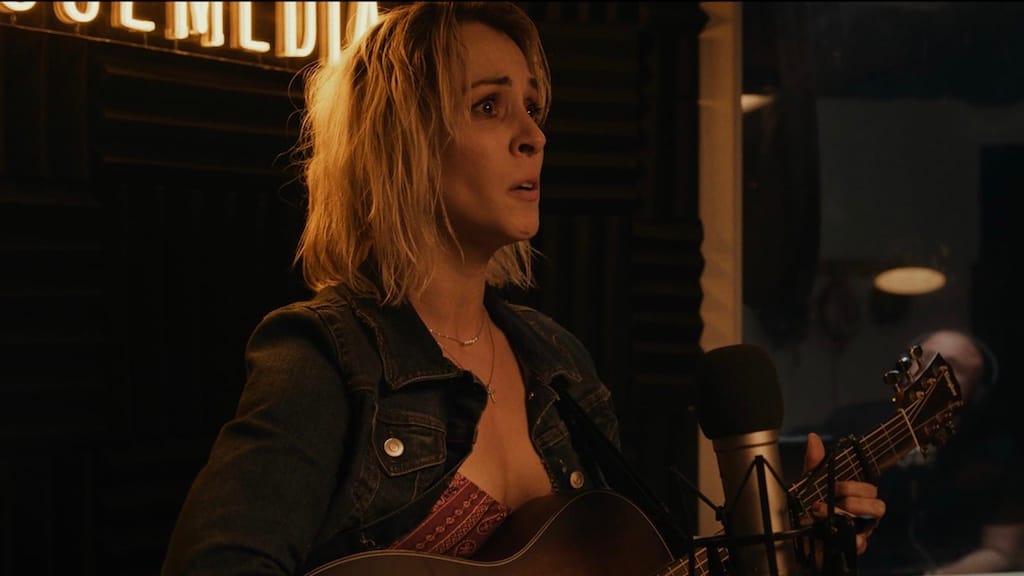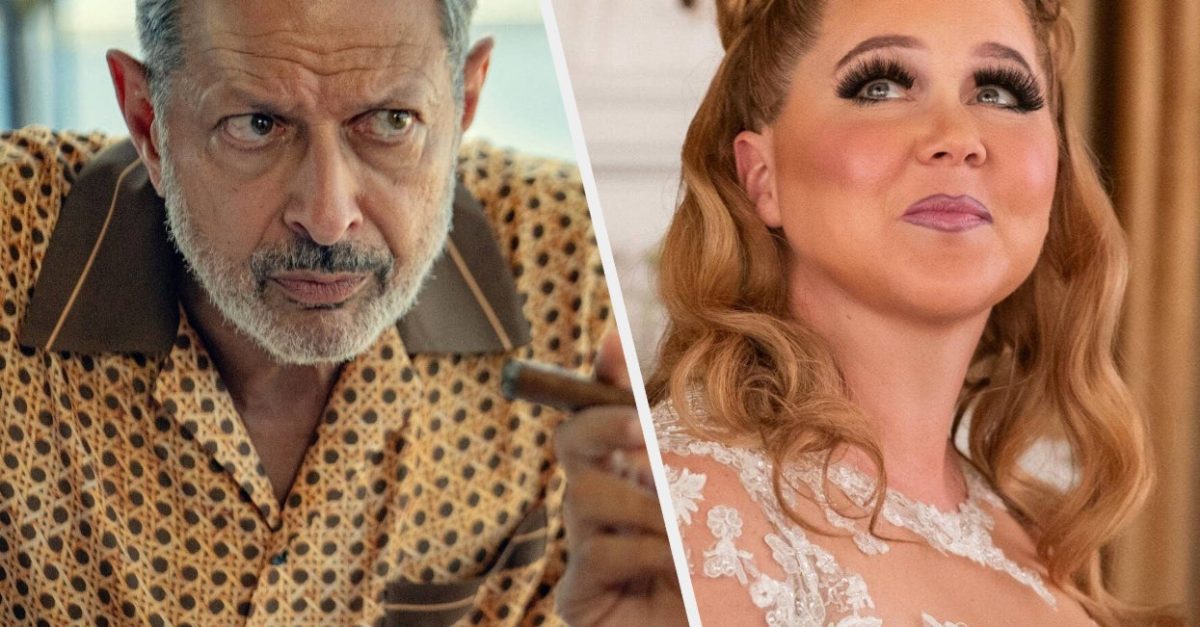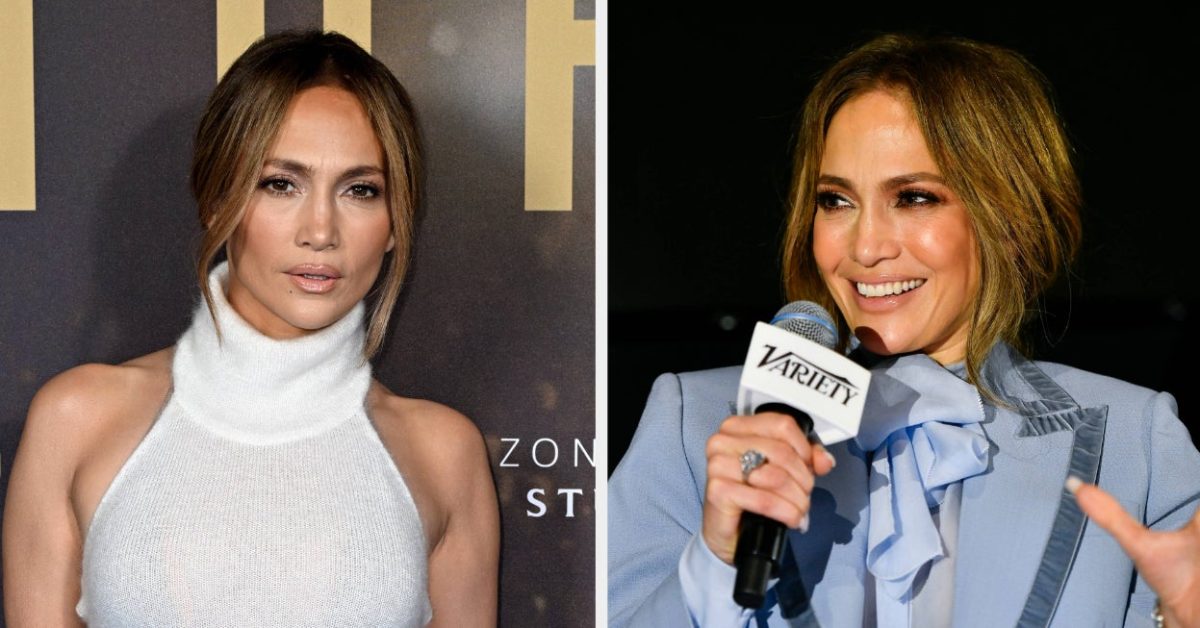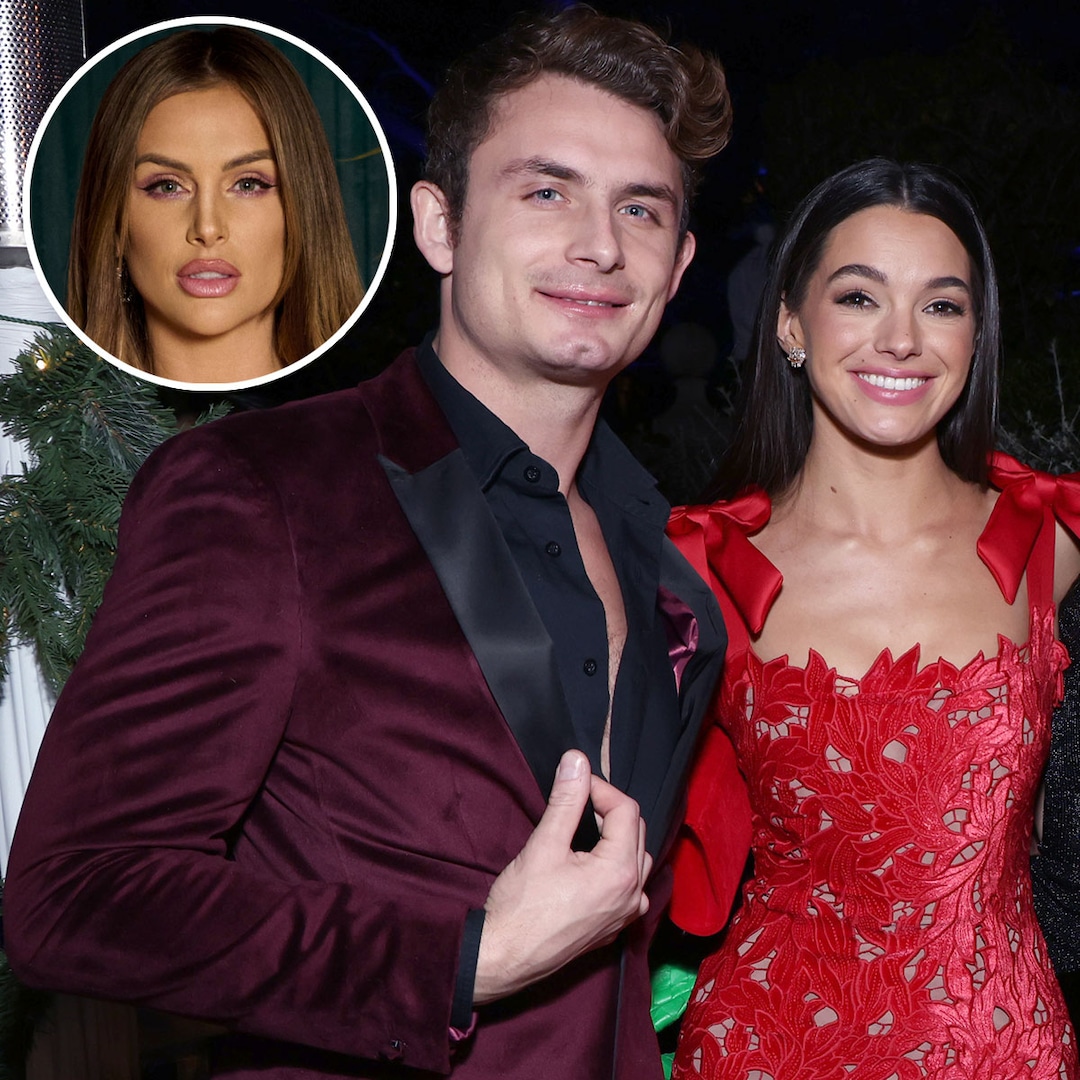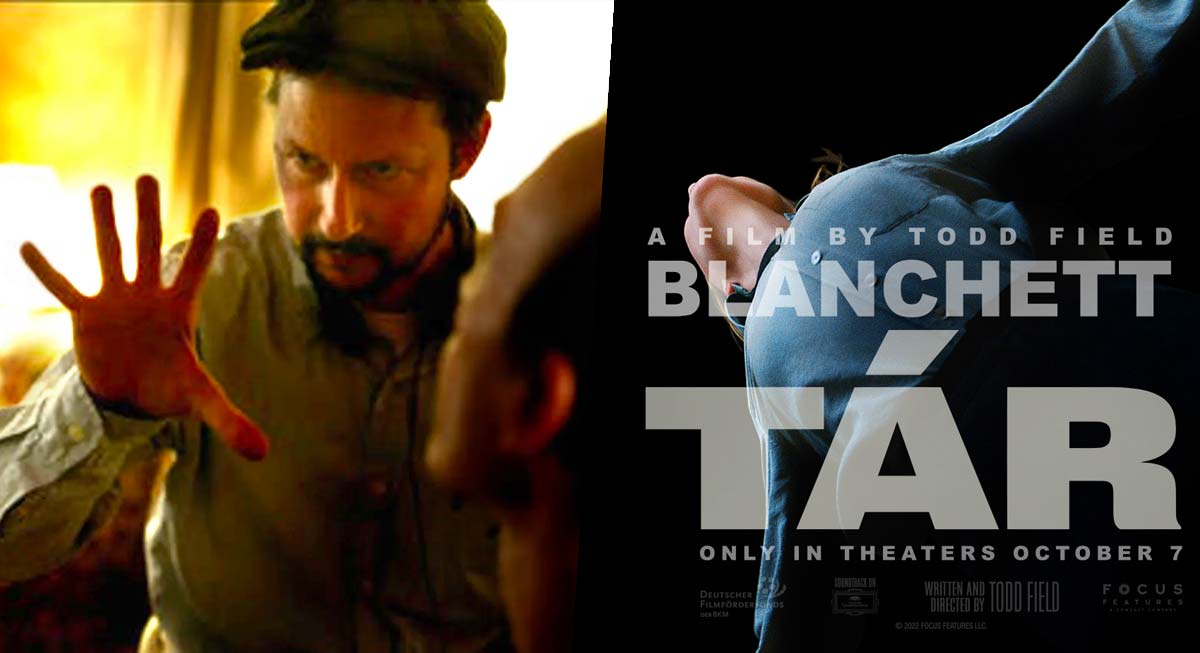
Todd Field Talks Working With Cate Blanchett, Lost Projects & Being OK With Never Directing A Feature Again [Interview]
Jan 21, 2023
While it was always his ambition to be a filmmaker, twenty, thirty years ago, director Todd Field was known as an actor, working with Penelope Spheeris, Nicole Holofcener, Jan de Bont, and even Stanley Kubrick in “Eyes Wide Shut” (1999). That quickly changed in 2001; Field’s directorial debut, “In The Bedroom,” would earn five Academy Award nominations, including two for Field for Best Picture and Best Adapted Screenplay. “Little Children” followed in 2006, earning three more Oscar nominations, including another Adapted Screenplay writing nomination for Field.
And then suddenly, Field, at least from our point of view, largely vanished. Attached to dozens of films over the years—including, famously, an adaptation of Cormac McCarthy’s “Blood Meridian” for producer Ridley Scott—for one reason or another, all of them fell apart.
READ MORE: ‘TÁR’ Review: Cate Blanchett Is At Her Best Since ‘Carol’ In Todd Field’s Music World Psychodrama [Venice]
Now, 16 years after “Little Children,” Field returns with an audacious masterwork in “TÁR,” a stunning film about power, power dynamics, and the transactional nature of power within the world of classical music, wielding Cate Blanchett as its own instrument of insurmountable power. “TÁR” is immense, bold, and haunting, a film that centers on Lydia Tár (Blanchett), widely considered one of the greatest living composers/conductors and the first-ever female chief conductor of a major German orchestra.
READ MORE: Cate Blanchett Says ‘TAR’ Is “About The Corruptive Nature Of Power” [Interview]
It’s difficult to say what “TÁR” is really about, other than an examination of power, in a nice tidy soundbite or turn of phrase. Because while it’s that seen through the hierarchal and fusty lens of the world of philharmonic politics and classical music, it’s about so much more, touching upon the abuse of power, how power corrupts, #MeToo, cancel culture, ambition, guilt, the things that haunt us, and where you go when you’re par excellence and have reached the top of the mountaintop. Contemporary in its exploration, “TÁR” also interrogates the changing nature of power and how, in the accelerating modern world, power can seemingly be seized or lost in the blink of an eye.
Daringly and unconventionally told, almost 2 hours and 40 minutes long, epic, sprawling, and containing multitudes of psychodrama, “TÁR” is really Todd Field’s magnum opus. If he never directs another feature after this, well, he will already have cemented his status as one of the filmmaking greats. Embodying this genius work is, of course, Cate Blanchett, who is the unsparing Lydia Tár, as fierce, commanding, and uncompromising as the film itself. It’s a tour de force performance, in a tour de force film, easily one of the best of the year, and we’d all be so lucky to see something this good anytime soon (it also co-stars Noémie Merlant, Nina Hoss, Sophie Kauer, Julian Glover, Allan Corduner, and Mark Strong).
I was fortunate enough to speak with Field in person last weekend, and in long, considered, thoughtful answers, he told me much about the making of this film, his intentions, where he’s been, working with Cate Blanchett, and much, much more. “TÁR” is currently playing at the New York Film Festival, opens in limited release this Friday, October 7, and then goes nationwide on October 28. Below is my conversation with Field.
I was telling your publicist that I understand this world, a little bit anyhow. My mother played in a symphony orchestra her entire life. My grandfather was a composer and a musician; I come from a big classical music family, and I remember all the philharmonic politics and the always-ongoing dramas in that world that my mother would be consumed and angered by.Oh yeah, big, big dramas there. When I first went down to Dresden [in Germany], we didn’t want this to be a band for hire. We wanted [the orchestra] to be a real living creature as a character, as a collective character in the film. So, I was desperate to use real players, which we did. We cast the first cellist in the orchestra, played by Dorothea Plans Casal, and Knut Braun is the real first clarinet. But in trying to figure out who might play these characters, I interviewed half the orchestra for two days, and it got very confessional. And they talked about many things, and you realize that it’s a large organization, and they have pledges and allegiances to certain people, and there are other people they’re at war with. It’s a big, big animal.
Right, for sure, all that sounds very familiar. There were all these factions within my mother’s orchestra, so much politics, so many people on different sides. It’s interesting, the conductor aspect of it, in “TÁR.” I remember years when my mother was super happy because of a great conductor, and I remember years or decades when she was miserable because of a bad one.Well, that’s the thing, right? Like, who do you surrender to?
Right, because of the hierarchy of it all, which, of course, you’re exploring.Right, that’s the thing. There’s a book called “The Maestro Myth” [subtitled: Great Conductors in Pursuit of Power], and they discuss how players will talk about how they don’t need conductors and how they don’t want to surrender to conductors.
And then within those interviews, often you’ll say, “But [Leonard] Bernstein came in, and then it was different for them, right?” And then you realize there are more symphony orchestras today than any time in human history. And they all have to have conductors. Whether those conductors can operate as exciting interpreters of the music or whether they can engage the players or not is irrelevant. They have to be up there. So, who makes the difference? Who are the Nathalie Stutzmanns of the world? Who are the Marin Alsops of the world?
It’s all like sports in a way, right? Great leaders; people who inspire, and if they’re incredible human beings, they can take a team of people to great heights.Yeah, absolutely.
So, you have a jazz background. You played trumpet, I think?Trombone.
Trombone, right. Okay, well, tell me everything [laughs]. This is a tremendous picture. My only regret is that I haven’t seen it twice, because we’ll talk now, but if I saw it in a week and we spoke again, I’d assume we’d have a very different conversation.Well, that’s interesting because I hear this all the time, in a way. People that have seen it twice say, “I saw a different movie the second time.” And I think people feel that way about a lot of films, but I hear this constantly about this film. And I feel that way myself. I’ve seen this film obviously many, many times. And I see it differently now; I’ve read the film differently many times, yeah. What was your question?
Well, the kernel and genesis of it, I guess. Because it’s so expansive, but I think, maybe, reductively, some people might think the entire thing is a response to #MeToo and cancel culture and things like that.Well, I started writing this at the very beginning of the pandemic in March 2020. Like everybody else, I was dressed in Hazmat; I was buying three weeks’ worth of groceries, going to 20 stores, and looking for toilet paper. I live in a multi-generational household where we were all, by necessity—because we couldn’t have any caretakers or whatever for older family members—we were all taking care of each other. We were all on top of each other, just like everyone else. And the idea of sitting down and spending your attention writing anything took on a very different weight. I felt like if I was going to write something, I wanted to write something that addressed some kind of primary questions that I’ve been having for a few years.
And one of those things I’ve been thinking about a lot was power and about how mutable power is, and how power structures work, and what was available to me in terms of being able to talk about power in a very transparent way, and others with a limited set of facts.
When is conversation or rhetoric dangerous? When is it dangerous to try to step into other people’s shoes who you’re absolutely sure you don’t agree with, to see if there’s common ground? To see if there’s something to where the conversation could have another dimension.
And I didn’t have any answers to any of those things, and I don’t think a lot of people did. I think a lot of people shared this frustration, which is, how do we talk about these things?
And Black Lives Matter had come up, and #MeToo had happened, and these very, very important movements happened, and within a very short period of time, they were ghettoized in a very pejorative way, without ever really unpacking why they appeared in the first place. So, there was all that sort of coupled with this idea that I’d had for a long time about a character who had come from a very particular prescribed set of circumstances, who had no real culture in their life, and who had seen a light in a crack of a door, which was concert music. And they had thought, “that’s it,” and that was so far away from where we find her at the beginning of this film. But that she found some salvation in this as a music maker, as a noise maker.
And now she’s in a very particular place in her life where she’s sitting on the top of this large cultural institution. And she could be running an architectural firm, she could be a CEO, but whatever it was, the love of the game for her is something else now. Because now she has to deal with this power structure, and that power structure has to do with complicity in terms of transactions and how power functions. It has to do with her own human messiness of making capricious decisions that are, in some cases, displays of what we can see are utter hypocrisy, and we all do that in our daily lives. But what she’s not doing is—she’s kind of dealing with this dead music that she’s reanimating.
Read more of this interview on the second page.
Publisher: Source link
TV Shows That Got Canceled In 2024
TV Shows That Got Canceled In 2024 Which 2024 canceled TV show will you miss the most? Share your pick in the comments! Disclaimer: This story is auto-aggregated by a computer program and has not been created or edited by…
Dec 22, 2024
How The Talk Emotionally Ended After 15 Years
The Talk has officially said "Goodbye." After 15 seasons and 2,993 episodes, the CBS daytime show came to an end on Dec. 20 with a heartfelt farewell from hosts Akbar Gbajabiamila, Amanda Kloots, Natalie Morales, Jerry O'Connell and Sheryl Underwood. The episode began with a standing ovation for the…
Dec 22, 2024
Jennifer Lopez Asked About Turning 60, Age
Jennifer Lopez Asked About Turning 60, Age Never ask a woman her age, a man his salary, or Jennifer Lopez how she feels about turning 60. On Sunday, the actor was interviewed by Variety amid the release of her new…
Dec 21, 2024
Lala Kent Shares Text With Ally Lewber After James Kennedy’s Arrest
The BCU (Bravo Cinematic Universe) was shaken on March 3, 2023, when it was confirmed that Tom and Ariana had ended their nine-year relationship amid the revelation that he'd had a seven-month affair with Raquel. "I made mistakes, I was…
Dec 21, 2024



